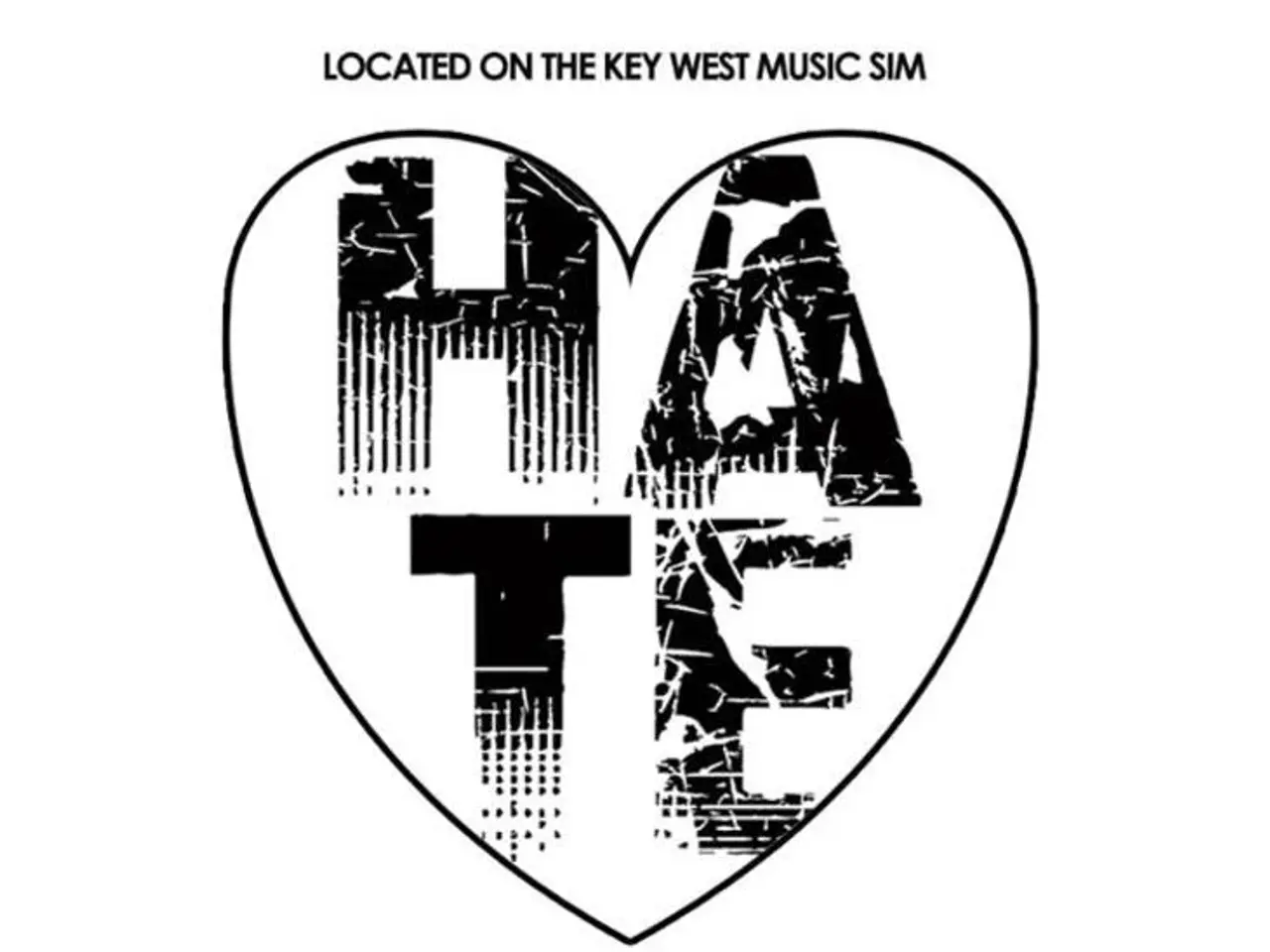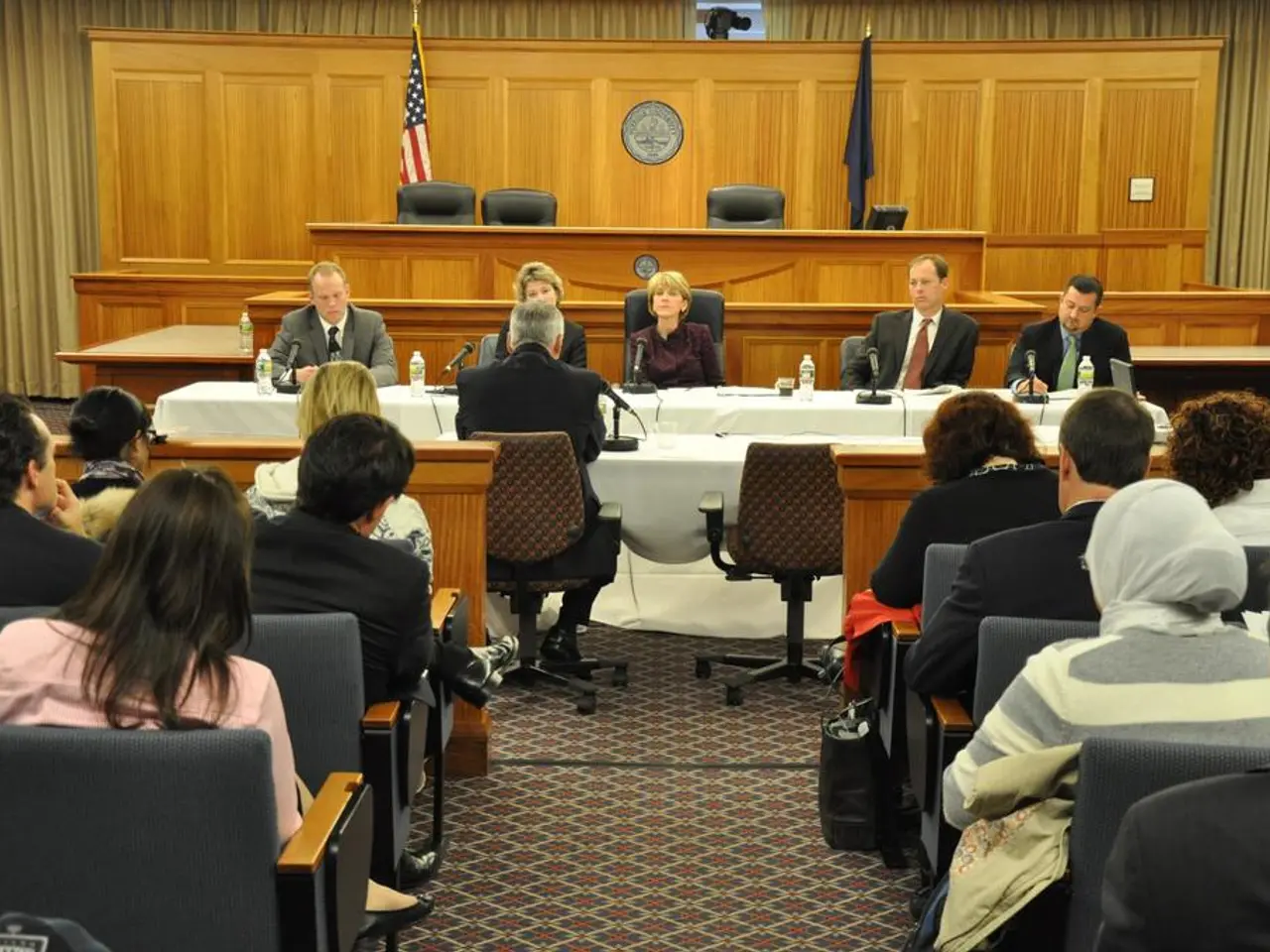Berlin Police conducted searches in nine apartment buildings, aiming to locate and seize potential hate correspondence.
Berlin's Crackdown on Online Hate Speech 🔔
The Berlin police, along with other federal states, have been busting down doors in a massive offensive against hate speech and incitement on the internet. This pushback, called the 12th action day against hate posts, targeted eight individuals aged between 26 and 70, after ten properties across several districts were searched.
In Berlin alone, the State Criminal Police Office (LKA) sent 55 police officers to Hohenschönhausen, Lichtenberg, Neukölln, Tempelhof, Lichterfelde, Charlottenburg, and Spandau. The raids were fruitful, securing a device for hate posts and other incriminating evidence, according to the police.
Posts with right-wing extremist content were most prevalent in the assortment of criminal hate posts targeted nationwide. The Federal Criminal Police Office (BKA) reported that two-thirds of these posts originated from the right-wing spectrum, with sporadic cases stemming from left-wing, religious, and foreign ideological or unclassified sources.
Germany's escalating issue of hate speech has gained notoriety in recent years. Statistical data shows that the number of criminal hate posts has nearly quadrupled from 2,411 cases in 2021 to a staggering 10,732 cases in 2024. This surge can be attributed to several key factors, including socio-political polarization, the expansion of social media platforms, and global trends in extremist ideologies.
Moreover, the rise of criminal hate posts online is fueled by factors like online anonymity, algorithmic amplification, and the formation of echo chambers. During times of economic and social uncertainty, scapegoating and extremist mobilization are common. Furthermore, the inconsistent enforcement of platform moderation policies allows hate speech to thrive.
To curb the tide of right-wing extremism online, Germany has initiated various initiatives. In 2018, the Network Enforcement Act (NetzDG) was introduced, mandating social media platforms to remove illegal hate speech within 24 hours of notification or face hefty fines. State and federal police special units focus on identifying and prosecuting online hate crimes. Collaboration with major tech companies is underway, aiming to improve content moderation and boost transparency.
NGOs, advocacy groups, and the general public are also playing a crucial role in addressing hate speech, promoting digital literacy, providing support for victims, and developing counter-narratives. Lastly, public funds are channeled towards research on digital radicalization and the development of tools to combat extremist content online.
In conclusion, while precise statistical data on criminal hate posts in Germany between 2021 and 2024 is scarce in the current search results, the trend of increasing right-wing extremist content online is evident. To combat this growing issue, a multi-pronged strategy of legal enforcement, technology, civil society initiatives, and research is deployed by the German government.
The crackdown on online hate speech in Berlin involves not only Berlinese state's police but also other federal states, targeting various spheres such as politics, general-news, and crime-and-justice. The rising issue of hate speech in Germany, particularly right-wing extremist content, has been a significant concern, prompting initiatives like the Network Enforcement Act (NetzDG) and collaborations with tech companies to improve content moderation.






